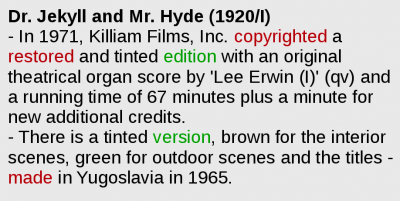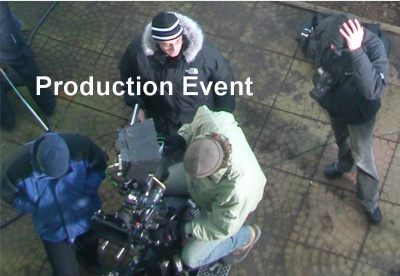Like most other intellectual or artistic creations, audiovisual works can undergo many stages of realisation, usage, modification and re-use. Introducing the concept of event allows us to capture details about these stages as machine-processable metadata.

From: Internet Movie Database Plain Text Data File alternate-versions.list, downloaded 02-Oct-2009.
|
Most current cataloguing systems for cinematographic works do not have data elements for events. Instead, statements about events are typically written into note fields.
The text on the left is from such a note field, created by the designers of the IMDb for remarks about alternate versions.
|

|
EN 15907 defines six types of events for describing occurrences in the lifecycle of a cinematographic work.
An event is characterised by time (however imprecise or unknown) and a location (however imprecise or unknown). It can be associated with agents (i.e. people, corporations), artifacts, or whatever may be of interest in its context.
Note the absence of a destruction event, following FIAF's motto, Don't throw away film.
|

Photo: Detlev Balzer, 2005
|
A production event typically encompasses the shooting of a film and all subsequent stages of production and post-production.
Any activity that creates a new variant or manifestation of a cinematographic work can also be described as a production event.
|


